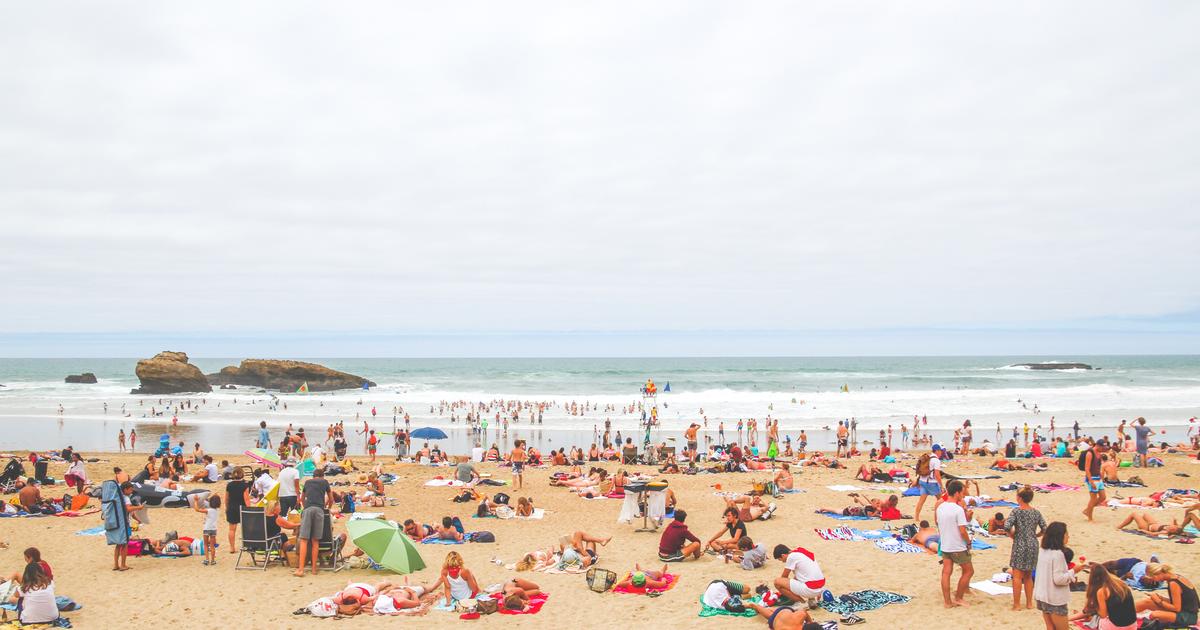A child who escapes supervision during a family stay is one of the worst fears of parents. Only the thing happened quickly and in this case, panic wins. Maxime Bonnet, sea rescuer at the National Society for Sea Rescue (SNSM), and Nassima Djebli, lieutenant-colonel and spokesperson for the national gendarmerie, give the first reflexes to adopt to keep his cool and quickly find his child.
In video, why do we have the impression that time flies on vacation?
Get closer to rescuers or authorities
Rather than walking the entire beach in panic or shouting the name of your child in the middle of a crowd, the first reflex to adopt is to turn to rescuers on the beach, or to the nearest gendarmerie. "We have surveillance cameras, drones, trained dogs, patrols on bikes, horses or on foot who know the area very well. We have all the necessary means to find the child, "says Nassima Djebli. Rescuer Maxime Bonnet is also very reassuring: "In 95% of cases, we find the child in less than two minutes of search. We're used to it." And it is better not to wait to rely on the authorities. The later the alert is given, the wider the search perimeter, which makes the work longer and more delicate.
Read alsoThe ideal list to not forget anything when packing the children
Prepare a photo and description of the child
To save time, Lieutenant-Colonel Nassima Djebli also advises parents to provide a description and photo of the child to show to the authorities or rescuers. "Detailed information about his outfit of the day, his distinctive signs, his age and his tastes greatly facilitate the search," she insists.
Stay on the beach and don't jump into the water
When a child escapes supervision on the beach, the idea of imagining him in the water can quickly worry and make us want to go into the sea to look for him. However, as sea rescuer Maxime Bonnet reminds us: "Children who get lost do not always have the reflex to go to the water. On the contrary, it very often happens that they walk on the beach, that they go to explore certain areas such as rocks, or even that they move only a few meters away. " He therefore advises instead to stay on the shore to have a better vision of the beach, move faster and be able to reach a lifeguard station more easily.
Do not touch the child's personal belongings
The child's belongings left with the parents can help find him. "They make it possible to know what he took with him to better identify him and possibly understand if he left hastily by abandoning his activities," says Maxime Bonnet. According to the spokeswoman of the gendarmerie, they are also very useful to have the smell of the child if the search lasts and requires the use of sniffer dogs.
Walking with your back to the sun
According to the sea rescuer, in 3 out of 5 cases, when a lost child moves, he advances with his back to the sun. Once the emergency services have been notified, it may therefore be wise to walk in this direction to participate in the search effort. If the child is familiar with the beach or area in which he got lost, it is also possible that he has gone to the usual places where he is used to play or explore.
Some preventive actions
Nassima Djebli and Maxime Bonnet finally recall some preventive measures to avoid the panic of the parents and the loss of the child. Thus, when arriving on the beach, parents can approach the first aid stations to ask for bracelets to attach to the wrist of their children: "All stations have them available. They are usually colored to be well identified, and we can write the name and phone number of the parents."
Lieutenant-Colonel Djebli also recommends preparing your child for the possibility that he loses sight of his parents: "We explain to him that it can happen and that it does not matter. We also think about teaching him to remember his full name, those of his parents, their telephone numbers and his address. " She also insists on the importance of presenting rescue workers as people you trust your child: "he must feel comfortable coming to talk to us, that's what we're here for."

